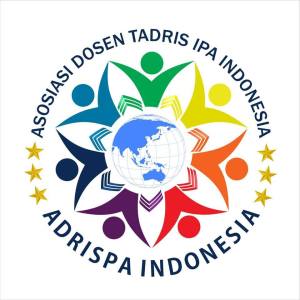GLOBAL TRENDS IN EDUCATIONAL POLICY IMPLEMENTATION AND THE COMPLEXITY OF QUALITY IN EDUCATION: A CAMEROONIAN PERSPECTIVE
DOI:
https://doi.org/10.21154/insecta.v2i1.2671Keywords:
Educational Policy Implementation, Education Reform, Quality Attainment, Quality KnowledgeAbstract
This article argues that effective policy implementation strategies based on the concepts of equity, flexibility, accountability, creativity and innovation can raise students’ learning and bring about a significant economic and social development. Cameroon is an example of an education system that has over the years developed very important policies in the hope of raising the quality of knowledge that students learn in schools. The country’s education sector strategy for 2020/2030 has a good number of policies which are aimed at developing skills and promoting the spirit of entrepreneurship in the learners from the primary through the secondary to higher levels. However, most of these policies have either failed or have taken a far longer time to attain their set objectives. Cameroon like many other countries in Africa, Asia, and the rest of the world seem to present a mismatch between their educational policy objectives and what is implemented in the field. This situation is very much unlike the case in many other countries where effective educational reforms have brought about measurable growth in their economies. As a result of the numerous and diverse challenges involved in this process, very few systems attain a significant level of success in these policies. Thus, they fail because of their inability to handle the various challenges that come with the struggle for quality in education reform. This study focuses on some of those challenges that are likely to be faced by any educational system, in their struggle to achieve quality in their education; why these challenges arise and how some systems have overcome them to attain their objectives. Based on the case study of Cameroon, the study comes up with a number of factors of failures in most systems. It is built on the idea that challenges are always part of the process of education, and success can only be achieved by braving themReferences
Ball, S. J. (2009). Privatizing education, privatizing education policy, privatizing educational research: Network governance and the “competition state.” Journal of Education Policy, 24(1), 83”“99. https://doi.org/10.1080/02680930802419474
Bolton, K., Botha, W., & Bacon-Shone, J. (2017). English-medium instruction in Singapore higher education: policy, realities and challenges. Journal of Multilingual and Multicultural Development. 38(10), 913-930, DOI: 10.1080/01434632.2017.1304396
Call, K. (2018). Professional teaching standards: A comparative analysis of their history, implementation and efficacy. Australian Journal of Teacher Education, 43(3), 93”“108. https://doi.org/10.14221/ajte.2018v43n3.6
Chou, M., Jungblut, J., Ravinet, P., Vukasovic, M., Jungblut, J., Ravinet, P., & Vukasovic, M. (2017). Higher education governance and policy : an introduction to multi-issue, multi-level and multi- actor dynamics. Policy and Society, 40(35), 1”“15. https://doi.org/10.1080/14494035.2017.1287999
Day, C., Flores, M. A., & Viana, I. (2007). Effects of national policies on teachers’ sense of professionalism: Findings from an empirical study in Portugal and in England. European Journal of Teacher Education, 30(3), 249”“265. https://doi.org/10.1080/02619760701486092Gopinathan, S. (2007). Globalisation, the Singapore developmental state and education policy : a thesis revisited. Journal of Globalisation, societies, and education, 5(1), 53-70. https://doi.org/10.1080/14767720601133405
Hallinger, P. (2010). Making education reform happen: Is there an “Asian” way?. Journal of School Leadership and Management, 30(5), 401-418. https://doi.org/10.1080/13632434.2010.502524
Helgøy, I., Homme, A., & Gewirtz, S. (2007). Local Autonomy or State Control ? Exploring the Effects of New Forms. European Educational Research Journal, 6(3), 198”“202.
Jonsson, A., Lundahl, C., & Holmgren, A. (2015). Evaluating a large-scale implementation of Assessment for Learning in Sweden. Assessment in Education: Principles, Policy & Practice, 22(1), 104”“121. https://doi.org/10.1080/0969594X.2014.970612
Morris P. & Scott I. (2003). Educational reform and policy implementation in Hong Kong. Journal of Education Policy, 18(1), 71-84, DOI: 10.1080/0268093032000042218.
Sahlberg, P. (2007). Education policies for raising student learning: The Finnish approach. Journal of Education Policy, 22(2), 147-171 https://doi.org/10.1080/02680930601158919
Shanahan, T., & Jones, G. A. (2007). Shifting roles and approaches: government coordination of post”secondary education in Canada, 1995”“2006. Higher Education Research & Development, 26(1), 31”“43. https://doi.org/10.1080/07294360601166794
Simola, H. (2005). The Finnish miracle of PISA: Historical and sociological remarks on teaching and teacher education. Comparative Education, 41(4), 455”“470. https://doi.org/10.1080/03050060500317810
Park, K., & Weible, C. M. (2018). Developing policy theories in South Korea : lessons from the advocacy coalition framework advocacy coalition framework. Journal of Asian Public Policy, 11(2), 136”“150. https://doi.org/10.1080/17516234.2017.1412904
Park, S. (2013). The political and institutional basis of Korea’s skill formation system. Journal of education and works, 26(3), 291-308. https://doi.org/10.1080/13639080.2012.742179
Ratnam-lim, C. T. L., Heng, K., & Tan, K. (2015). Large-scale implementation of formative assessment practices in an examination-oriented culture. Assessment in Education: Principles, Policy & Practice, 22(1), 61”“78. https://doi.org/10.1080/0969594X.2014.1001319
Sang-Eun Lee, Y.-L. Y. (2018). In pursuit of equity through competency-based curriculum in South Korea. Educational Policy.
Tan, C. (2017). The enactment of the policy initiative for critical thinking in Singapore schools. Journal of Education Policy, 32(5), 1”“16. https://doi.org/10.1080/02680939.2017.1305452
Tupas, R. (2015). Inequalities of multilingualism : challenges to mother tongue-based multilingual education. Language and Education, 29(2), 112”“124. https://doi.org/10.1080/09500782.2014.977295
Wesselink, R., Mulder, M., Elsen, E. R. V. D., & Biemans, H. J. A. (2006). Developing competence-based VET in the Netherlands. Journal of Vocational Education and Training, 56(4), 1”“11
Kim Y.H. (2000) Concurrent Development of Education Policy and Industrialization Strategies in Korea (1945-95): A historical perspective. Journal of Education and Work, 13(1), 95-118, DOI: 10.1080/136390800112259
Hannu, S. (2005) The Finnish miracle of PISA: historical and sociological remarks on teaching and teacher education. Journal of Comparative Education, 41(4), 455-470, DOI: 10.1080/03050060500317810








